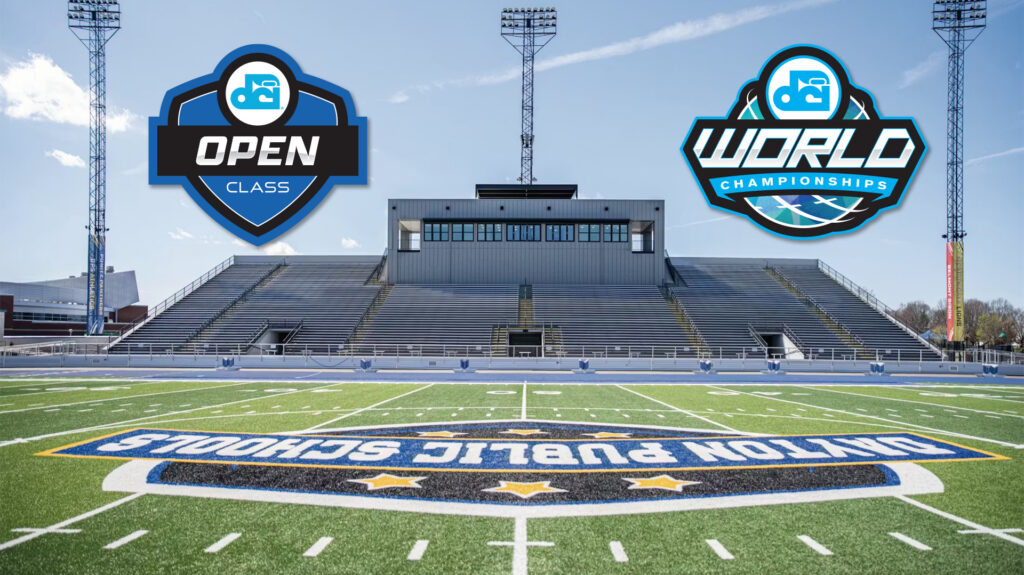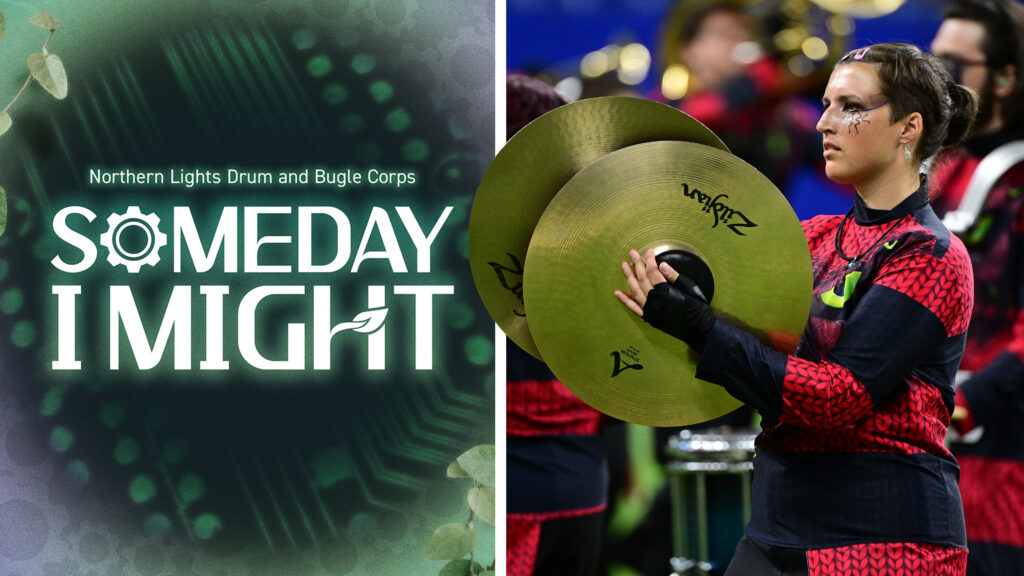The following was submitted by Chris Tanner of the Americanos and the Colts. Drum corps is always considered to be a life-changing experience. You always hear the stories of how someone met their best friend, their girlfriend/boyfriend, or their wife/husband while on tour. You hear about the hard rehearsal days, and the people you spent 70 grueling days with. No matter what division you march(ed), there are always memories with everyone involved. The questions always asked are: “How did you survive your rookie season?” “How did you go to the audition camps and prepare yourself mentally and physically for a 12-hour rehearsal day?” And most importantly, “How did you survive?” Well, at least in my case, I would not have survived without the help of veterans in the corps, and with six drum corps seasons behind me between two separate corps, I feel I have been changed and helped by those in corps, and have also helped shape the lives of hundreds of others. When I entered drum corps, I was the 12-year-old boy who thought he knew everything, including how a drum corps was run, as I had been around drum corps from my earliest days. I also entered corps as the rebel child — well, at least in the eyes of my parents. I was not doing well in school, I was caught lying several times, and I simply did not care about what I was doing or where I was going. I entered the 1999 season as support staff for the Americanos. At the Oswego, Ill., show, director Joe Kuerzi came up to the souvenir booth and asked my dad if I could march. The decision to send me on the road was “fairly” easy, according to my dad. However, my mom did not take too long to object to her baby son leaving to tour with a bunch of 18-year-old kids. The next rehearsal day came, and I stepped out onto the field thinking I knew what was going on. I stepped right into basics block only to realize I had not the slightest idea how to march, let alone understand why the drum major was clicking a gock-block. The hardest thing, though, was looking at all the faces of the marching members, each with a look saying, “We picked up a 12-year-old who has no idea what is going on.” A few staff members and several kids took me aside after the first rehearsal day and told me that I was doing well and I should keep up the good work. To me, that meant the world. And from that point forward, I knew that at least some people had respect for me. I knew that if I kept pushing and striving, I would be rewarded with some form of respect from the other members. I continued my hard work for the remainder of the season, and at least from what I noticed, I had established the respect of most of the corps by the end of the summer. Everyone was right behind me when I missed my parents; I was having an amazing time just being one of the guys. It honestly was like I had 60 other brothers and sisters just because everyone helped me succeed at something I had always wanted to do. After that first year, I once again returned to the Americanos, this time as a veteran. The only problem was, due of my immaturity, I was quickly labeled as a “power vet.” I always tried to tell people what was going on, and I went back to the way I entered the 1999 season. I also know that I did not have the respect of the 2000 ‘Canos because — well, I know if a 13-year-old told me what to do, I probably would not listen too intensely to him, either. The same continued throughout the 2000-2002 seasons. I later learned to keep my mouth shut, but I still kept saying things that should have been said only by staff, as I was too young to be “junior staffing.” I stayed with the Americanos until the end of the 2002 season, when I decided it was time for me to explore other options and attempt to make a Division I corps. I auditioned with the Colts, and with this being the first-ever “audition” I had to go through, I went in completely nervous. I auditioned on bass drum and played well, but because of veteran situations, I was cut. I was told to come back and audition as a cymbal player. I decided to do that, and was later offered a position in the six-person cymbal line. I was once again a rookie, but this time, I made sure I wouldn’t make the same mistakes I made when I was 12. I ended up taking a back seat like I should. I knew things about corps, but not about the Colts. I pretty much let the Colts staff and members introduce me into the organization and teach me the “Colts” way of drum corps. Four veterans however, really helped me through the whole experience: Dan Allerman and Phil Snyder, both three-year vets at the time, as well as Matt Gibson and Ben Gervais, both in their second year. I loved the way those guys took me under their wing — starting at camps — and showed me the ropes. I always asked these guys questions. These four were always there for me, especially when I had the “summer breakdown.” I earned respect by giving respect. Allerman said this about my first summer. “At first I thought Chris was just another goofy rookie who would be fun to make fun of and hit with things. Before long, though, he had earned my trust and respect, and I didn’t think of him as a rookie any more, although it was still fun to hit him with stuff.” The 2004 season opened up with the standard winter camps, but this time I was a veteran and I knew how I should act in order to be a role model. I started it off with just joke-telling and stupid antics — my attempts to try and relax others trying out for the corps. I invited people to sleep next to some other vets and myself as an icebreaker. The one thing that I didn’t learn until after the summer is how much I changed the outlook of the drum corps activity in the eyes of some people. I felt that I took several people under my “wing” and tried to do for them what the other four earlier did for me, most notably bottom bass drummer Joe Fisher and my seat partner, Jenny Acheson. After the season, I received a number of e-mails telling me how I was an influence on the bus, helping members get more hyped. Acheson told me she wouldn’t have been as successful in her rookie season otherwise, and veteran Jessica Nohner mentioned that on the field, I helped her push through the hottest days because at the most random times, I was always the kid yelling and running back to sets with just that extra “oomph” needed to end rehearsal. The thing I learned the most was this: To attempt to earn respect, I shouldn’t tell people what to do and push them to be scared of me. I feel that the way to have rookies respect oneself and truly attempt to better themselves on the field is to not only show them how things are run on the field, but to help lighten things up off the field. When they’re ready, the rookies will ask the questions to which they need answers.
Michael Boo has been involved with drum and bugle corps since 1975, when he marched his first of three seasons with the Cavaliers.
He has a bachelor’s degree in music education and a master’s degree in music theory and composition.
He has written about the drum corps activity for over a quarter century for publications such as Drum Corps World, and presently is involved in a variety of projects for Drum Corps International, including souvenir program books, CD liner notes, DCI Update and Web articles, and other endeavors. Michael currently writes music for a variety of idioms, is a church handbell and vocal choir director, an assistant director of a community band, and a licensed Realtor in the state of Indiana. His other writing projects are for numerous publications, and he has published an honors-winning book on the history of figure skating. His hobbies include TaeKwonDo and hiking the Indiana Dunes. But more than anything, Michael is proud to love drum corps and to be a part of the activity in some small way, chronicling various facets of each season for the enjoyment of others.





